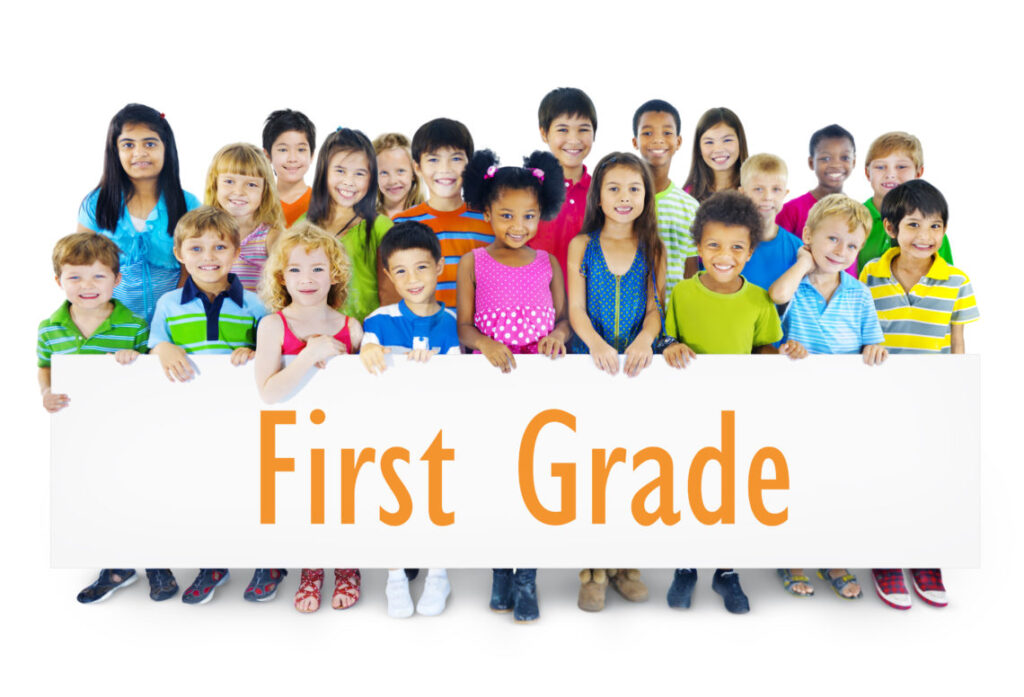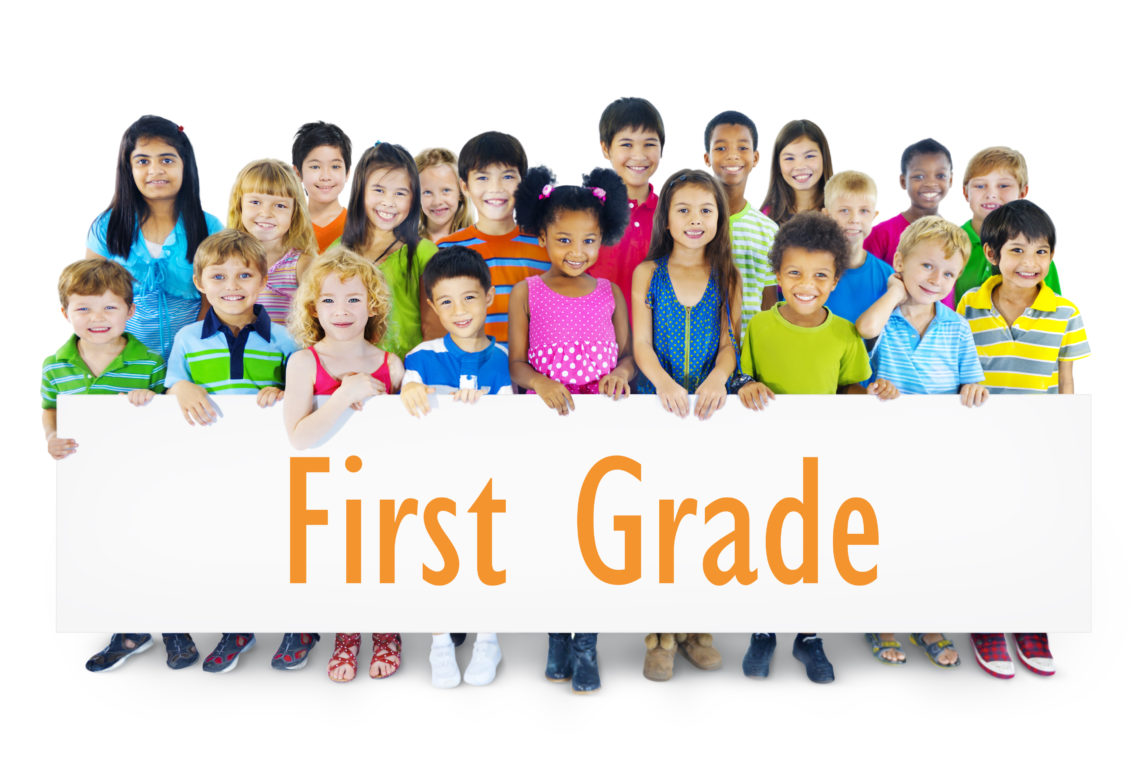
Unlocking Knowledge: What 1st Graders Learn and Why It Matters
First grade marks a pivotal year in a child’s educational journey. It’s a time of significant growth, both academically and socially. Understanding what 1st graders learn provides valuable insight for parents, educators, and anyone interested in shaping young minds. This article delves into the core subjects and essential skills acquired during this crucial year, highlighting the importance of each component in building a strong foundation for future learning.
The Building Blocks of Literacy
Reading and writing take center stage in first grade. Students transition from recognizing individual letters and sounds to decoding words and comprehending simple sentences. The curriculum focuses on phonics, sight words, and reading comprehension. This is a crucial step in developing lifelong literacy skills.
Phonics and Decoding
What 1st graders learn about phonics is fundamental. They learn to associate letters with their corresponding sounds, enabling them to sound out new words. Activities like blending sounds (e.g., c-a-t = cat) and segmenting words into individual sounds are common. Mastering these skills helps students become independent readers.
Sight Words
Sight words, also known as high-frequency words, are words that students learn to recognize instantly without needing to sound them out. Examples include “the,” “and,” “is,” and “a.” Building a strong sight word vocabulary allows students to read more fluently and focus on comprehension. Games, flashcards, and repeated reading are popular methods for teaching sight words. Recognizing these words quickly is vital for reading comprehension, which is a key part of what 1st graders learn.
Reading Comprehension
Beyond decoding, first graders begin to develop reading comprehension skills. They learn to identify the main idea, characters, and setting of a story. Teachers often use strategies like asking questions, making predictions, and summarizing to help students understand what they read. Understanding the meaning behind the words is a critical aspect of what 1st graders learn in reading.
Writing Skills
Writing skills develop alongside reading. First graders learn to write simple sentences, focusing on proper grammar, capitalization, and punctuation. They may also begin to explore different types of writing, such as narrative, informative, and opinion writing. Journaling and creative writing activities encourage self-expression and build confidence in their writing abilities. Learning to express themselves clearly in writing is a key component of what 1st graders learn.
Numbers and Beyond: Mathematics in First Grade
Mathematics in first grade builds upon the foundational concepts learned in kindergarten. Students expand their understanding of numbers, addition, subtraction, and basic geometry. Hands-on activities and real-world examples help make math engaging and relevant.
Number Sense and Operations
What 1st graders learn about number sense includes counting to 120, understanding place value (tens and ones), and comparing numbers. They also begin to solve simple addition and subtraction problems within 20. Manipulatives like counters, number lines, and ten frames are often used to help students visualize and understand these concepts. A solid understanding of number sense is essential for future math success.
Geometry and Measurement
First graders are introduced to basic geometric shapes, such as squares, circles, triangles, and rectangles. They learn to identify these shapes and describe their attributes. They also begin to explore measurement concepts, such as length, weight, and time. Activities like measuring objects with rulers and comparing the weights of different items help students develop a practical understanding of these concepts. This exploration of shapes and sizes is a fun and engaging part of what 1st graders learn.
Problem Solving
Problem-solving skills are integrated throughout the math curriculum. Students learn to analyze word problems, identify relevant information, and choose appropriate strategies to find solutions. Working collaboratively and explaining their reasoning helps students develop critical thinking skills. Learning to apply math concepts to real-world situations is a crucial aspect of what 1st graders learn.
Exploring the World: Science and Social Studies
While reading and math are often the primary focus, science and social studies provide opportunities for students to explore the world around them and develop critical thinking skills. These subjects help students make connections between what they learn in the classroom and their everyday lives.
Science Explorations
What 1st graders learn in science often includes topics like plants, animals, weather, and the human body. They may conduct simple experiments, observe nature, and learn about the importance of conservation. Hands-on activities and field trips can make science engaging and memorable. Fostering curiosity about the natural world is a key goal of first-grade science.
Social Studies Foundations
Social studies in first grade typically focuses on topics like family, community, and citizenship. Students learn about different cultures, historical figures, and the importance of following rules and respecting others. They may also participate in activities like creating maps and learning about different holidays. Understanding their place in the community and the world is an important part of what 1st graders learn.
Beyond Academics: Social and Emotional Learning
First grade is also a time of significant social and emotional development. Students learn to interact with their peers, follow classroom rules, and manage their emotions. Social and emotional learning (SEL) is an integral part of the first-grade curriculum.
Developing Social Skills
What 1st graders learn about social skills includes sharing, taking turns, and resolving conflicts peacefully. Teachers often use strategies like role-playing and group activities to help students develop these skills. Learning to work collaboratively and respect others is essential for success in school and beyond. These skills are crucial for navigating social situations.
Emotional Regulation
First graders are also learning to identify and manage their emotions. Teachers may use strategies like mindfulness exercises and discussions about feelings to help students develop emotional regulation skills. Learning to cope with frustration, anxiety, and other emotions is an important part of social and emotional development. Understanding and managing emotions is a vital skill that what 1st graders learn.
Building Confidence and Self-Esteem
Creating a supportive and positive classroom environment is crucial for building confidence and self-esteem. Teachers celebrate student successes, provide encouragement, and help students develop a growth mindset. Believing in themselves and their abilities is essential for academic and personal growth. Fostering a sense of self-worth is an important part of what 1st graders learn.
The Importance of Play and Creativity
While academic learning is important, play and creativity also play a vital role in first-grade education. These activities help students develop their imagination, problem-solving skills, and social skills.
Creative Expression
Art, music, and drama provide opportunities for students to express themselves creatively. They may participate in activities like painting, drawing, singing, playing instruments, and acting in plays. These activities foster imagination, self-expression, and a love of learning. Allowing for creative expression is a valuable part of what 1st graders learn.
Learning Through Play
Play-based learning is an effective way to engage first graders and help them learn through exploration and discovery. Activities like building with blocks, playing games, and engaging in imaginative play can help students develop problem-solving skills, social skills, and creativity. Integrating play into the curriculum makes learning fun and engaging. The importance of play in fostering development highlights what 1st graders learn extends beyond textbooks.
Supporting First Graders’ Learning Journey
Parents and educators play a crucial role in supporting first graders’ learning journey. Creating a supportive and stimulating environment at home and in the classroom can help students thrive.
Parent Involvement
Parents can support their child’s learning by reading with them regularly, helping them with homework, and communicating with their teacher. Attending school events and volunteering in the classroom are also great ways to get involved. Active parent involvement is a key factor in student success. Showing an interest in what 1st graders learn can make a significant difference.
Effective Teaching Strategies
Teachers can use a variety of effective teaching strategies to engage first graders and help them learn. These strategies include hands-on activities, differentiated instruction, and positive reinforcement. Creating a supportive and engaging classroom environment is essential for student success. Tailoring teaching methods to individual needs is a key aspect of supporting what 1st graders learn.
Conclusion: A Foundation for Future Success
First grade is a critical year in a child’s educational journey. What 1st graders learn in reading, writing, mathematics, science, social studies, and social-emotional learning lays the foundation for future success. By understanding the curriculum and supporting students’ learning journey, parents and educators can help them thrive academically and personally. The blend of academic, social, and emotional skills that what 1st graders learn is essential for their development. The skills and knowledge gained during this year are invaluable for future learning. Understanding what 1st graders learn and how to support their development is crucial for setting them on a path to success. The comprehensive curriculum ensures that what 1st graders learn is well-rounded and prepares them for the challenges ahead. By focusing on what 1st graders learn, we can help them build a strong foundation for a bright future. The knowledge and skills that what 1st graders learn this year will serve them well in their academic journey. The importance of what 1st graders learn cannot be overstated, as it shapes their future learning experiences. Finally, focusing on what 1st graders learn ensures that they are well-prepared for the challenges and opportunities that lie ahead. [See also: How to Help Your Child Succeed in First Grade]

